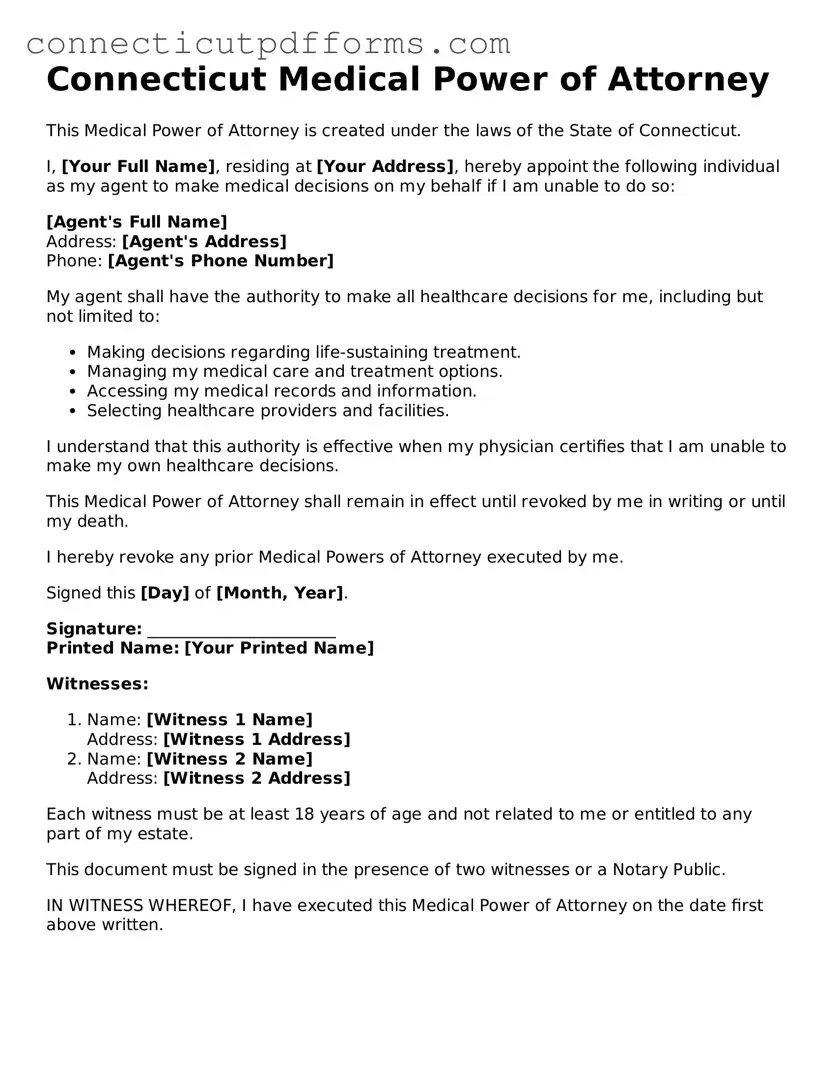Fillable Medical Power of Attorney Form for Connecticut
The Connecticut Medical Power of Attorney form is a legal document that allows you to designate someone to make medical decisions on your behalf if you become unable to do so. This form ensures that your healthcare preferences are respected and followed, providing peace of mind for you and your loved ones. It is crucial to complete this form promptly to ensure your wishes are honored when it matters most.
Take action now by filling out the form. Click the button below to get started!
Launch Editor Now

Fillable Medical Power of Attorney Form for Connecticut
Launch Editor Now
Finish the form without slowing down
Edit your Medical Power of Attorney online and finish with a quick download.
Launch Editor Now
or
▼ Medical Power of Attorney PDF Form
